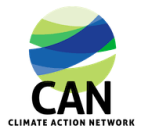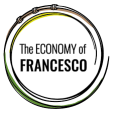Pope Francis invites faithful to celebrate progress, plan ambitious decade during Laudato Si’ Week
To celebrate the end of the Laudato Si’ Special Anniversary Year, Pope Francis invites the world’s 1.3 billion Catholics to joyfully participate in Laudato Si’ Week 2021, to be held 16-24 May.
The Vatican-sponsored celebration will bring Catholics together to rejoice in the great progress they’ve made in bringing Laudato Si’ to life and to plan ambitious action ahead of the UN Biodiversity Conference (COP15), the 26th UN Climate Change Conference (COP26) and the decade ahead.
The theme for the weeklong celebration is, “for we know that things can change” (Laudato Si’ 13).
The event coincides with the sixth anniversary (May 24) of when Pope Francis finished writing the encyclical. Laudato Si’ has enlivened Catholic communities across the globe to work against the ecological crisis and climate emergency.
But, as evident in the rapid pace of species extinction and climate change, more urgent action is needed to create a more just and sustainable future.
As Pope Francis said on Earth Day, “When this destruction of nature is triggered, it is very difficult to stop it. But we are still in time. And we will be more resilient if we work together instead of doing it alone.
”
During Laudato Si’ Week, Catholics will come together and present to the world a living testimony of Laudato Si’ transformations.The week will feature presentations from world-renowned leaders that will showcase how they’ve transformed their communities and invite Catholics to take similar action regionally and locally.The dialogues will carry a special focus on advocacy efforts aimed at raising the Catholic voice ahead of COP15 and COP26.
At the grassroots level, local leaders will spearhead similar opportunities, including sustainability initiatives, educational events, and prayer gatherings, that will seek to inspire concrete action for our common home.
Laudato Si’ Week also will feature a missionary-like sendoff that will encourage the faithful to go and announce the Gospel of Creation in every corner of the globe.
The week will finish with a preview of the tool that will help the global Church realize more progress in the decade ahead: the Laudato Si’ Action Platform. The Vatican-led effort will empower Catholic institutions, communities, and families to implement Laudato Si’.
Catholics will be uniting at a crucial time in 2021. In November, at COP26, countries must announce their plans to meet the goals of the Paris agreement. At COP15, scheduled for October in China, the world will have the opportunity to set meaningful and robust targets to protect creation.
The Laudato Si’ Special Anniversary Year was launched by the Vatican last May, at the end of the 2020 Laudato Si’ Week, which commemorated the fifth anniversary of the encyclical.
Laudato Si’ Week 2021 is sponsored by the Vatican Dicastery for Promoting Integral Human Development and facilitated by the Global Catholic Climate Movement in collaboration with RENOVA+, Caritas Internationalis, CIDSE, International Union Superiors General, Union of Superiors General, Society of Jesus, the General office for justice, peace and integrity of creation from the Order from the Franciscan Friars, and in partnership with dozens of Catholic partners.
More information can be found at laudatosiweek.org.
Laudato Si’ Week: 5 years since Pope Francis’ encyclical on integral ecology (by Vatican news)
Pope Francis’ first encyclical is focused on the idea of ‘integral ecology’, connecting care of the natural world with justice for the poorest and most vulnerable people.
Only by radically reshaping our relationships with God, with our neighbours and with the natural world, he says, can we hope to tackle the threats facing our planet today.
Science, he insists, is the best tool by which we can listen to the cry of the earth, while dialogue and education are the two keys that can “help us to escape the spiral of self-destruction which currently engulfs us”.
At the heart of the Pope’s reflections is the question: “What kind of world do we want to leave to those who come after us, to children who are now growing up?”. The answers he suggests call for profound changes to political, economic, cultural and social systems, as well as to our individual lifestyles.
Chapter 1 sets out six of the most serious challenges facing “our common home”:
- Pollution, waste and our throwaway mentality: “the earth, our home, is beginning to look more and more like an immense pile of filth”
- Climate change: “one of the principle challenges facing humanity in our day” but “many of those who possess more resources and economic or political power seem mostly to be concerned with masking
the problems or concealing their symptoms”
- Water: “access to safe drinkable water is a basic and universal human right” yet entire populations, and especially children get sick and die because of contaminated water
- Biodiversity: “Each year sees the disappearance of thousands of plant and animal species” and the consequences cannot be predicted as “all of us, as living creatures, are dependent on one another”.
Often transnational economic interests obstruct this protection
- Breakdown of society: Current models of development adversely affect the quality of life of most of humanity and “many cities are huge, inefficient structures, excessively wasteful of energy and
water
- Global inequality: Environmental problems affect the most vulnerable people, the greater part of the world’s population and the solution is not reducing the birth rate but counteracting “an extreme
and selective consumerism”.
And Chapter 3 explores six of the deep root causes of these growing crises:
- Technology: While it can bring progress towards sustainable development, without “a sound ethics”, it gives “those with the knowledge, and especially the economic resources… an impressive dominance over the whole of humanity”
- The technocratic mentality: “the economy accepts every advance in technology with a view to profit……yet by itself the market cannot guarantee integral human development and social inclusion”
- Anthropocentrism: we fail to understand our place in the world and our relationship with nature. Interpersonal relations and protection of human life must be set above technical reasoning so environmental concern “is also incompatible with the justification of abortion”
- Practical relativism: environmental degradation and social decay is the result of seeing “everything as irrelevant unless it serves one’s own immediate interests”
- Employment: Integral ecology needs to take account of the value of labour so everyone must be able to have work and it’s “bad business for society” to stop investing in people to achieve short-term financial gains
- Biological technologies: GMOs are a “complex environmental issue” which have helped to resolve problems but bring difficulties such as concentrating land “in the hands of a few owners”, threatening small producers, biodiversity and ecosystems
So where do the solutions lie? Here are six of the best:
- In “The Gospel of Creation”: Chapter 2 examines the Old and New Testaments to show how human life is grounded in our relationships with God, with our neighbours and with the created world. We must acknowledge our sins when we break these relationships and realize our “tremendous responsibility” towards all of God’s creation
- In Integral Ecology: Chapter 4 explores this new paradigm of justice which means “the analysis of environmental problems cannot be separated from the analysis of human, family, work-related and urban contexts”, while solutions must be based on “a preferential option for the poorest of our brothers and sisters”
- In Dialogue: Chapter 5, entitled ‘Lines of Approach and Action’ stresses the need for “honest and open debate, so that particular interests or ideologies will not prejudice the common good”. The Church does not presume to settle scientific questions or to replace politics, but it can promote dialogue on global and local governance, transparent decision-making, sustainable use of natural resources, as well as engaging in respectful dialogue with other people of faith and with the scientific world
- In Education: Chapter 6 urges schools, families, the media and the churches to help reshape habits and behavior. Overcoming individualism, while changing our lifestyles and consumer choices, can
bring much “pressure to bear on those who wield political, economic and social power” causing significant changes in society.
- In Ecological Conversion: Chapter 6 also highlights St Francis of Assisi as the model of “a more passionate concern for the protection of our world”, characterized by gratitude and generosity,
creativity and enthusiasm
- In Spirituality: Finally Chapter 6 and the two concluding prayers show how faith in God can shape and inspire our care for the environment. The Sacraments, the Trinity, the model of the Holy Family and our hope for eternal life can teach, motivate and strengthen us to protect the natural world that God has given us.








